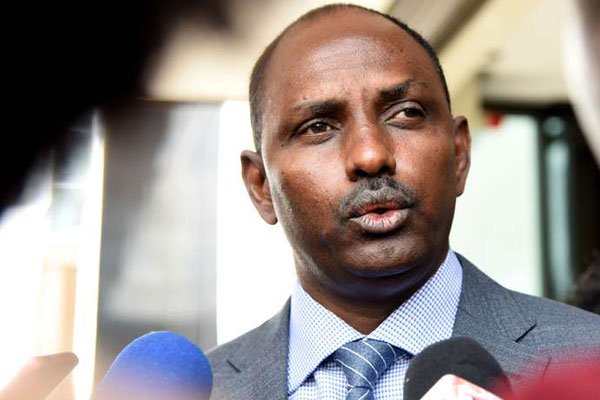The Treasury rolled out a new payment system to chop off corrupt government cartels that have been in ages claiming salaries on behalf of ghost employees, workers who have died, retired or deserted their duties.
Acting Treasury Secretary Ukur Yatani says in a circular that funds for salaries will now be allocated to government and parastatal workers whose details are loaded onto the payroll system, which is technically known as Integrated Personnel Payroll Data (IPPD).
A preliminary audit by the retired Auditor General revealed that some government ministries, State-owned agencies, and commissions that employ staff like teachers continue to pay officers who are no longer in service nor exist in person.
The removal of ghost workers from the payroll is one of the strategies, together with a freeze on new hiring and pay increases, aimed at reducing Kenya’s ballooning public sector wage bill.
“Allocation for personnel emoluments must be supported by Integrated Personnel Payroll Data (IPPD) and each MDA will be required to provide this information to support personnel requirements,” says the circular.
Analysts reckon that the State has not fully utilized the IPPD, opening a loophole for payment of non-existent workers, hence increasing the public wage bill.
“The main problem with the usage of the IPPD could very well be because of the tendency by government to come up with good plans but failing in implementation,” said Renaldo Desouza, head of research at Sterling Investment Bank, which has also been preparing regular updates on public finance issues.
In 2014, a preliminary audit of the public service payroll revealed that Kenyan taxpayers were losing more than Sh1.8 billion annually in salary payments to ghost workers.
Kenya’s public sector wage bill stood at Sh604.3 billion in 2012 and is nearly half the Sh1.4 trillion the Kenya Revenue Authority (KRA) collected as taxes in the year to June.
The government has frozen hiring for the next three years in an austerity measure aimed at reducing the country’s wage bill to free resources for development and projects like road, dams and power plants construction.
There will be no recruitment of staff in the next three years unless a ministry, State department or agency (MDA) gets the approval from the Treasury.
CS Yatani, in a circular to all principal secretaries and other accounting officers of the national and State agencies, says there will be no costing for recruitment in the 2019-20 budget.
The directive also stops ministries from seeking funds for interns or any planned staff upgrades, meaning government workers may not get a pay rise soon. Ministries will also be required to get written approval from the Treasury confirming availability of funds before putting a salary review request to the Salaries and Remuneration Commission (SRC).
There are an estimated 842,000 government employees including those in the Civil Service, teachers, parastatal workers and companies majority-owned by the State, up from 732,000 in 2014.


















